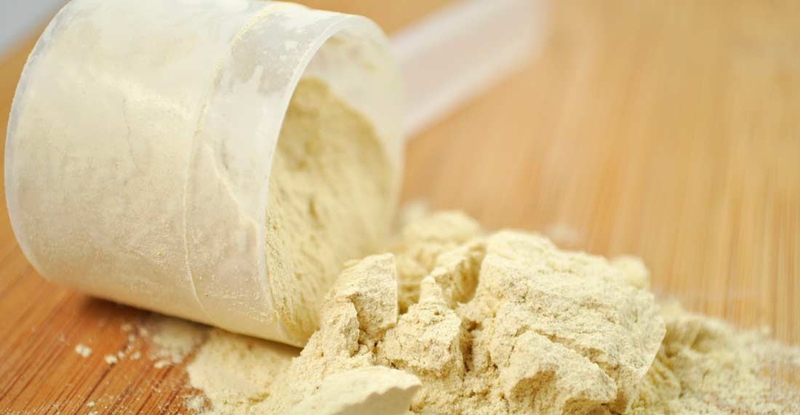There are two types of proteins in milk – the whey class and the casein class. Whey proteins are more beneficial because of their higher levels of essential amino acids. They are used usually in bread, ice cream, baby formula, soup, and other food products. Whey protein contains protein that human body can digest easily, which is the reason why it is an important element of any protein supplement created for muscle strength and immune function.
Considering their health benefits, there are numerous whey protein products available in the market. These products are, however, manufactured/processed differently, so the finished product will have different levels of sugars, proteins, fat, and minerals. It is therefore common for people to ask more about whey protein side effects along with its benefits. Are there really any side effects of whey protein? Keep reading to find out now!

Possible Whey Protein Side Effects That You Should Never Ignore
Since FDA doesn't regulate herbs and supplements, it is hard to be sure of purity, strength, safety, and side effects of any such products. It is important to read the labels before you buy any herbs, drugs, or supplements, and know what's included in the product. If you notice any side effects, you should get in touch with your doctor right away.
It is worth mentioning that whey protein is usually safe when you don't exceed the amounts recommended by the manufacturer. Sticking to what's mentioned on the label will keep you from dealing with whey protein side effects. It is also safe when taken no more than 50g/day. Here are some of the side effects that you may notice when using whey protein products:
Whey protein may lead to changes in your blood cholesterol levels, abnormal heart rhythms, increased diabetes risk, headaches, kidney dysfunction, increased fracture risk, stomach symptoms, and liver damage.
In some cases, some of the side effects of whey protein include increased bowel movements, gas, cramps, constipation, nausea, and thirst.
One of whey protein dangers is that it lowers blood sugar levels, so it is important to work with your doctor and adjust medication to regulate your blood sugar.
The use of whey protein may increase your risk of bleeding, so it is important to avoid it if you already have any bleeding disorder or you're taking drugs that may increase the risk of bleeding.
You may not want to use whey protein if you have low blood pressure because it may reduce your blood pressure after use.
You should not be driving or operating heavy machinery after using whey protein because it may cause drowsiness or sedation.
You should use it cautiously if you take medications that affect the immune system or you have intestine or stomach disorders.
It is a good idea to avoid using this product if you are allergic to milk or milk products, including goat's milk, sheep's milk, cow's milk, and mare's milk. Otherwise, you may end up dealing with an allergic reaction, including rash, diarrhea, failure to thrive, and vomiting.
Possible Whey Protein Benefits
It is true that the extended use of whey protein may lead to certain whey protein dangers, but when used properly, you will enjoy several benefits as well. For instance:
It helps you lose weight. The research shows you may end up losing body fat by using a specialized whey fraction.
It has anti-cancer properties. The research shows that the use of whey protein concentrate and glutathione modulation has proved beneficial in cancer treatment.
It lowers cholesterol. The use of whey protein may help lower total cholesterol and LDL cholesterol.
It helps with asthma. The use of whey protein may help improve immune response in kids with asthma.
It lowers blood pressure. Using beverages supplemented with whey protein help lower blood pressure and reduce your risk of cardiovascular disease.
How Much Whey Protein Should You Take?
To avoid dealing with whey protein side effects, it is important to know how much whey protein you should take daily. You need to understand that your daily protein need depends on your sex, age, and physical activity level. Here are few considerations to know how much whey protein to take.
One scoop is the typical serving size, but there may be a difference in scoop weight and size among brands. It is, therefore, important to check the label and know how much protein you will get from one scoop.
You only need 0.4-0.6g of protein per pound of your body weight if you're moderately active. It means you should take 60-90g of protein daily if you weigh 150 pounds. You need more protein if you're into strength training and perform intensive strength training sessions – you should take 0.9g of protein every pound of body weight if you're an athlete.
Maintain a food journal to know how much protein you get from food every day. Now, find out more about your protein needs and take whey protein to fulfill your protein need that you cannot fulfill through food.
Remember, you may not need to take whey protein at all if you get enough protein from food. It is a good idea to use whey protein only if you're falling short of your daily protein requirements.

View All Comments /Add Comment